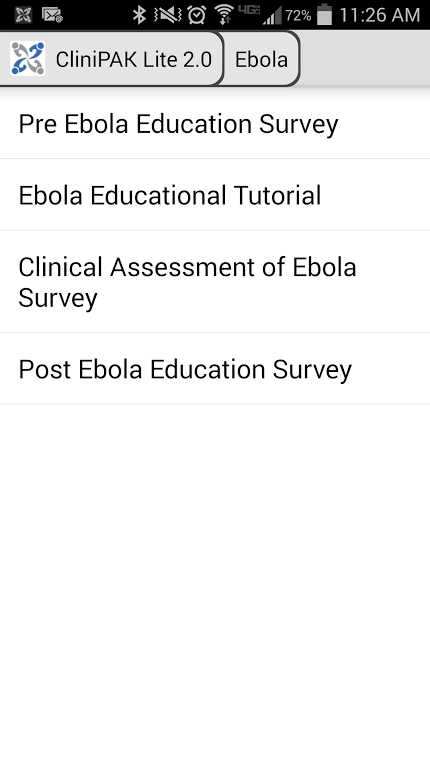In the midst of the largest Ebola outbreak on record, one international partnership has worked together to provide assessment, education and diagnostic tools to front-line health workers, primarily midwives, in one state in Nigeria. The necessity for a rapid and systematic response to Ebola is essential. Early identification of cases as well as having a thorough understanding of the disease is necessary to stop its spread. Currently, Vecna Cares Charitable Trust alongside InStrat Global Health Solutions, the Nigerian National Primary Healthcare Development Agency (NPCDA), The Subsidy RE-Investment, and Empowerment Programme (SURE-P), has been working with midwives to use electronic surveys focused on maternal and child health.
In the wake of the Ebola outbreak, a representative from InStrat proposed to Vecna Cares the creation of electronic surveys for education and assessment of Ebola to be used by the midwives already on the ground in Ondo, Federal Capital Territory (FCT), Kano, and Anambra States.
Great idea. But, how?
InStrat, in collaboration with other subject matter experts (Anadach Consulting) brainstormed the idea and crafted the content in collaboration with an Infectious Diseases expert from the University of Leeds, UK. The components of the module include a pre and post test education tutorial test, an education tutorial, and clinical assessment survey. The information was then sent to Vecna Cares in Cambridge, MA who created the surveys, edited them, and pushed them down to the tablets midwives are currently using in Ondo State, Nigeria. The pre test is to be taken by each midwife and other front line health workers in each Clinic, followed by an education tutorial, and a post tutorial test. The pre and post tutorial tests are to quantify the impact of the tutorial. Health workers can walk through a clinical assessment survey for all suspected cases of Ebola allowing them to either rule out or continue with quarantine and testing for Ebola.

The intersection of health and technology has provided an avenue for increasing access, educational material, data capture and communication across the globe. Vecna Cares, a non-profit arm of a for-profit tech company, has been working for the last few years on creating electronic medical records and data capture in low-resource settings. As a GHC Fellow working as Program Manager for Vecna Cares, this is my first experience working in the technology field and the lessons learned in just one month have been incredible.
The strong response to this imminent public health catastrophe has inspired me as a public health professional. Perseverance by partners working together has made this project a reality. While the results are yet to be determined, the ability to create and deploy the project in just a few weeks has been a true team effort; an inspirational development by problem solvers to help halt one of the most pressing international health concerns.
